
Denise Tumblin, CPA, recommends reevaluating these areas of your veterinary practice.

Denise Tumblin, CPA, is president and owner of Wutchiett Tumblin and Associates, a Columbus, Ohio, firm offering management advice as well as valuation and acquisition services to equine and companion-animal practices. Tumblin merges her business skills, farm background, and personal interest in companion, equine, and food animals to assist clients in achieving their goals.
In addition to her consulting work, Tumblin is a featured speaker, a Veterinary Economics Editorial Advisory Board member, and she directs the annual Benchmarks Study of Well-Managed Practices.

Denise Tumblin, CPA, recommends reevaluating these areas of your veterinary practice.
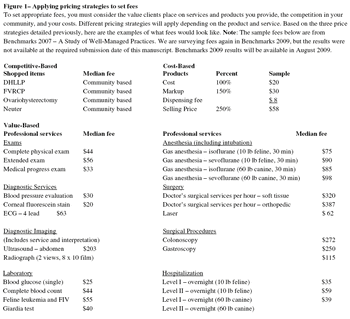
If you're not charging the right fees, you could feel the pinch when you want to invest in new medical technology or give your doctors and staff members a raise.

The valuation of a veterinary practice reveals a telling story about the practice and its owners and staff.
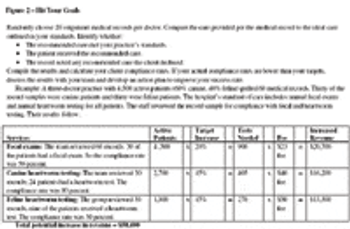
Making your practice more profitable isn't about luck.

Maintaining consistency in a multiple-doctor practice is a common challenge.
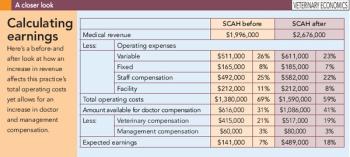
If your practice is struggling financially, take a look at this real-world example for inspiration.

In her Progress in Practice seminar, consultant Denise Tumblin recommended that you step back from the day to day rush and think about how you want to practice and what type of client you most want to see.

In this audio clip from the Veterinary Economics Progress in Practice seminars, consultant Denise Tumblin, CPA, talks about client service and building pet owners' perception of value.

Especially in the current economic environment, you may hate that moment when you ask the client for money. In this audio clip from Progress in Practice, consultant Denise Tumblin addresses this issue and talks about how to explain the value you're offering as you make your recommendation.
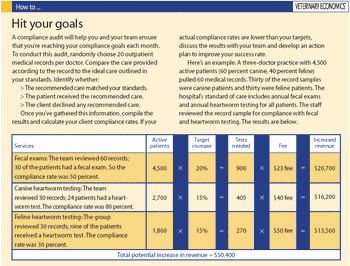
Develop a game plan to meet your financial goals.

The valuation of a veterinary practice reveals a telling story about the practice and its owners and staff.
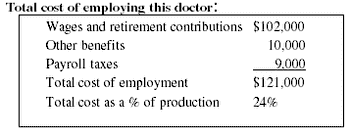
What's fair when it comes to associate compensation? Owners and associates want to know, and too often each party's understanding of what's fair lies at opposite ends of the spectrum.

Maintaining consistency in a multiple-doctor practice is a common challenge. But assuming all the doctors are competent, you may wonder why inconsistencies even matter.

I want a digital radiography system. How do I decide if it's financially worth it?
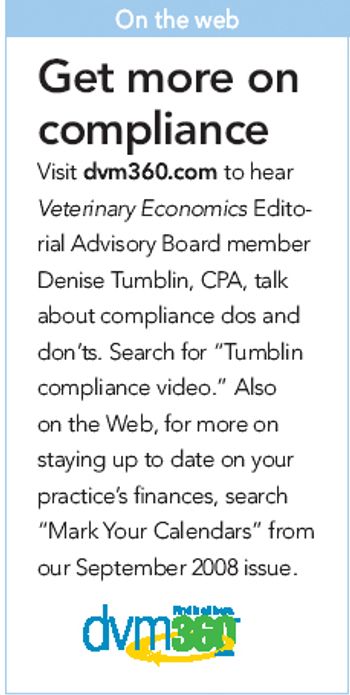
Practice management software can allow your practice to run more smoothly.

This video explains why money matters, even when you're not the owner.
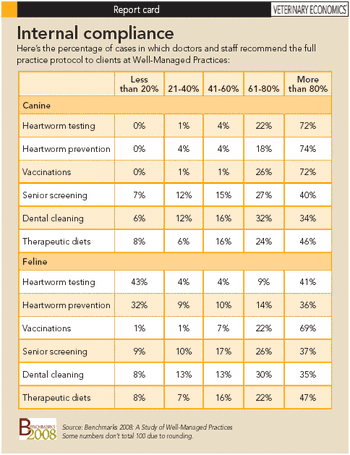
If your client and internal compliance is just average-or worse-jump to the head of the class with these tips.
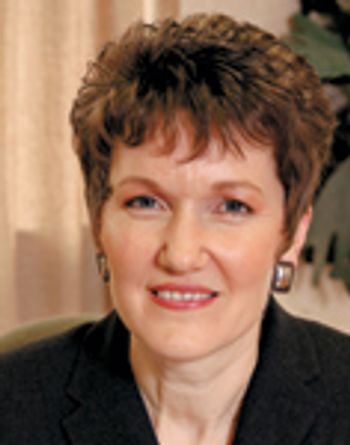
Here are some tips from Denise Tumblin, CPA, president of Wutchiett Tumblin and Associates in Columbus, Ohio, and a Veterinary Economics Editorial Advisory Board member:
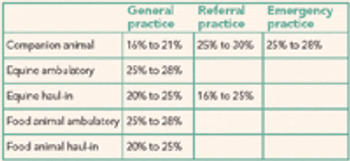
Clueless about compensation ranges? Check out this chart.
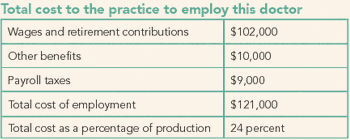
Compensation: Case closed. Solve the mystery with this sample calculation.

Owners and associates want to know the truth, but often each side is mired in mystery.

Print this PDF checklist to see how your associates are compensated for services and products as compared to Well-Managed Practices.

The story of a practice makeover that's been years in the making. It's inspirational and humorous because of the owner's positive outlook, along with his love and respect for his profession, his team, his patients, and his clients.

Compare your value-based fees with Well-Managed Practices'.

It's time to reconsider these myths and misconceptions about pricing.

Use this tool from Benchmarks 2007 to gather information about other practices in your area.
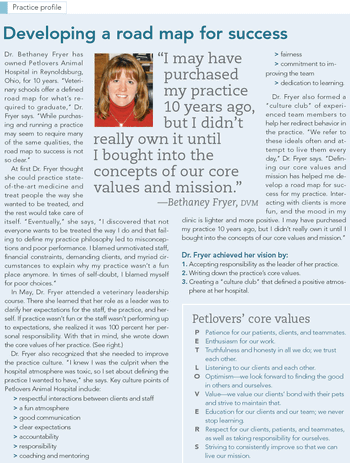
See how Well-Managed Practices turn their core values into financial success.

What's the difference between a client care coordinator and a receptionist? Is there a pay difference between the two?

How do the levels of accounts receivable compare in a companion animal practice to an equine practice? What's a reasonable level of accounts receivable for both?
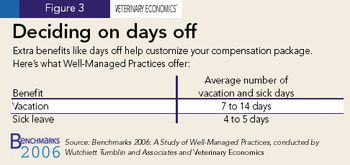
You get what you pay for, so it should be no surprise that paying peanuts yields less-qualified, more-likely-to-be-unhappy employees-and high turnover.